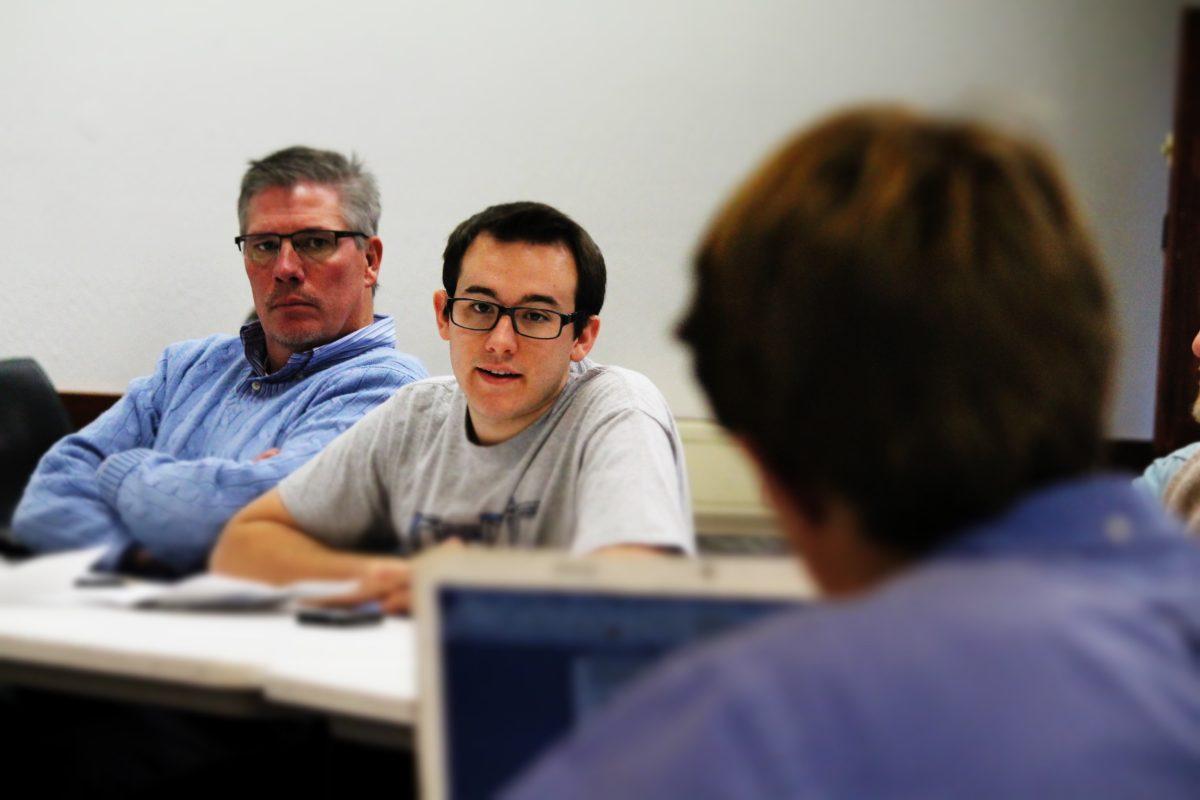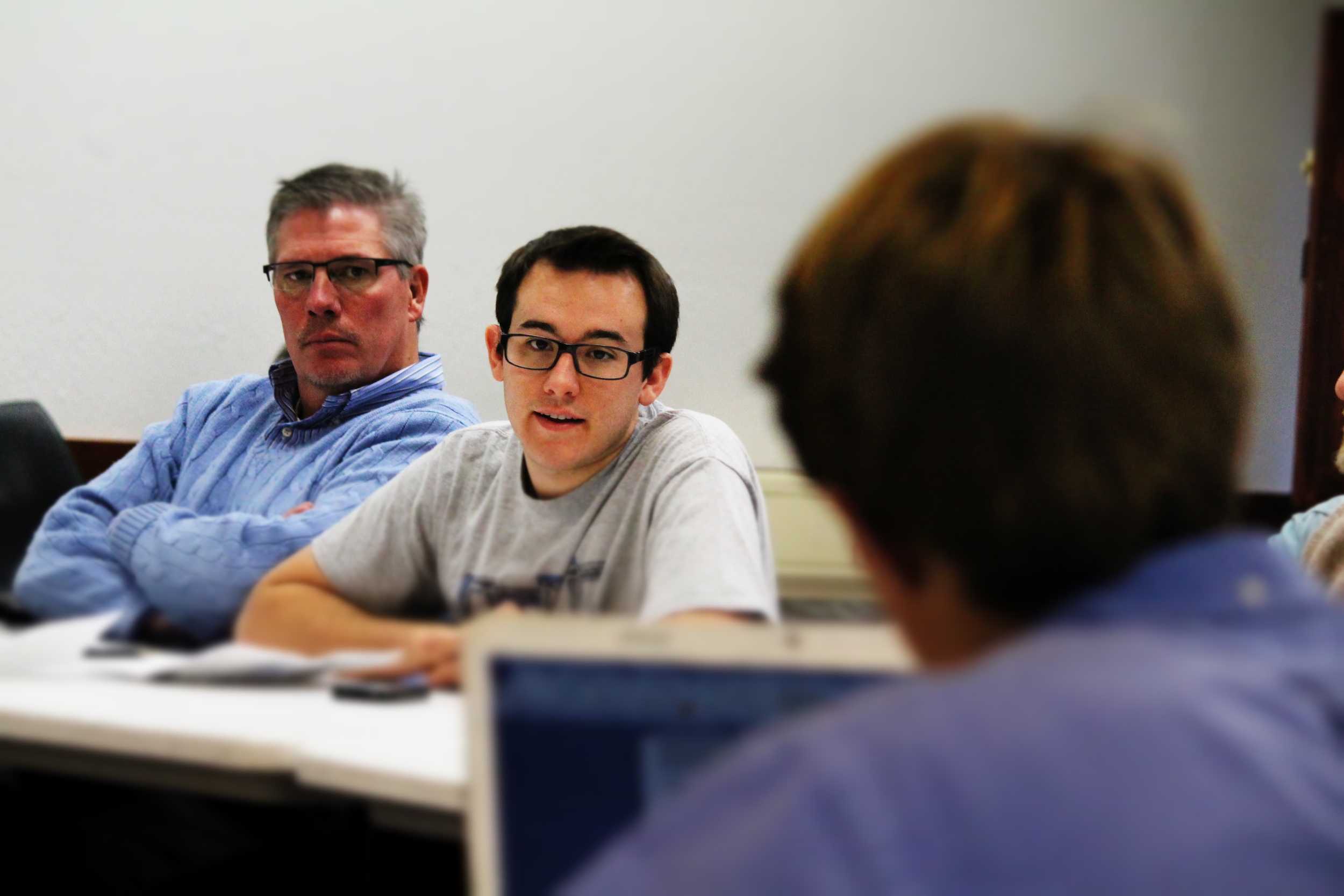In their final meeting before moving to the new student center, the Associated Students Senate voted unanimously to pass a new grant policy for Chartered Student Organizations (CSO), the technical term for university-recognized clubs.
The Senate had initially wished to pass the new policy a week before, but they decided to give it an additional week to give the necessary fine-tunings that will make it successful.
“It’s important that instead of worrying about time, we worry more about quality of the work,” said Iman Rashed, who oversees these meetings as chair of the senate. “Even though we understood the time pressure in providing these grants, it would be a disservice to just pass it at crunch time rather than actually working on it and giving it our best effort.”
After receiving $30,000 in requests from CSOs, which also happens to be the entire amount they can allocate amongst clubs per semester, Vice President of Finance Matthew Dougherty realized that changes to the current policy were necessary.
“The senate authorizes [a certain] amount of money to give out to organizations; what happened was that clubs requested that amount of money within the first month of school,” said Executive Director of Associated Students Erik Dickson, who serves as a staff advisor to the Senate. “We had a whole lot of clubs that couldn’t get grants because they were waiting for the other grant contracts to expire.”
As finance is his area of expertise, Dougherty headed the operation and began to look for ways to improve on the existing policy.
One aspect he improved on was how grants were, well, granted. Previously, grants were categorized into three tiers: on-campus programming, off-campus travel, and supplies and club development. Depending on the CSO’s needs, they could apply under one of those tiers for up to as much as $2,000 per grant and up to $3,500 per year.
“CSOs can now apply for funds for different things, like now they can apply for consumables,” said Dougherty. “It used to be they could only apply for three tiers, but now there are five tiers of different funding and we tightened up the language so it’s less ambiguous and clubs know what to expect.”
Dougherty decided to bump up the number of tiers to five in order to encourage clubs to not just apply for the money, but to use it as well.
“My hope is that organizations will now use the funds that we grant them and have some really great programs for our students,” said Dougherty. “In the past, say they applied for $300 grant and were approved; sometimes they would just use like five dollars, so we want them to actually use the funds that we grant them and to consider them for large scale programs.”
Dustin DeMatteo, the vice president and safety officer of the men’s soccer club, emphasized that grant money is an essential part of how the club operates.
“Using grants reduces the overall amount for financial dues charged to each club member per semester. Recently, the travelling grant was the most beneficial,” said DeMatteo. “We used this grant to help fun our Aztec Cup tournament in San Diego where we placed second among a large amount of teams.”
Another big-ticket item Dougherty decided to keep intact was the food policy, meaning CSOs will still be unable to use student funds to pay for trips to In-N-Out Burger or Applebee’s.
Dickson says that the grant money is about benefitting all of the students as opposed to individuals or just a few individual clubs.
They found one flaw in the previous grant policy where Greek organizations had registered for intermural sports with the use of money allocated for grants.
“The fact that some fraternities were able to get grant money—Associated Students money—for intermural sports before was just ridiculous,” said Rashed.
This will no longer be a legitimate use of grant money, money that is in part generated by the student fees that everyone pays.
The Associated Students are pushing their new policy by adding on an optional certification that would grant CSOs a “Lobos Preferred” status, which is free. To achieve this status, the CSO’s president and finance officer would attend a workshop on filling out the grant paperwork. Afterwards, the title is valid for one full year, ending at the end of the second semester following the completion of the workshop.
One benefit includes an additional $1,000 in grant money per year for clubs, easily dishing out the rewards to those that are willing to put in the time.
“What happens is, the better trained clubs are so much more successful with the process,” said Dickson. “They ask for exactly what they need, they use it the way they’re supposed to use it, and they just cycle through the system quickly, so we’re giving those who are trained [Lobos Preferred] the upper benefit.”
With a unanimous vote to pass the new policy, members of the Senate believe that it will not only succeed, but thrive and encourage CSOs to reach Lobos Preferred status.
“I love how there is a different group, the Lobos Preferred group, rather than just the basic club group because it really incentivizes CSOs to come and find out how to fill out the grant process,” said Rashed. “It’s getting students ready for life after Sonoma State; you’re going to be able to fill out forms correctly and you’re going to have to be able to read policy.”
However, perhaps the biggest change to the policy will be the very reason it succeeds. Unlike in the past, where CSOs were able to apply for over 50 percent of their grant money for the year, there will now be a cap per semester for the amount of money they can receive. This effectively helps clubs budget for the entire school year, since the spring semester generally sees the largest number of grant requests and dollar amounts in past years.
Members of the Senate were pleased with how the overall document turned out and commended Dougherty for his efforts.
“I think it’s great because they [the Senate] are looking at the bigger picture and saying: ‘how are we making sure that every club has quick access, can get what they need, and get good training,’ rather than just hope through some magical assimilation of information that they know exactly what they’re supposed to be doing,” said Dickson.
DeMatteo hopes to work with other clubs to spread the positive benefits of clubs.
“Collaborating on the programming grant with other clubs to bring great on-campus events to the student body would be ideal,” said DeMatteo, “I believe that clubs campus-wide are looking to use the potential that’s lying around in order to spur the student body into becoming more familiar with our clubs. We have a lot to offer at this school.”
The new grant policy document will be available on the Associated Students website (sonoma.edu/as/business/club-grants/) within the next week, and the Senate is hoping to have made grant money available again shortly after that.





![[Both photos courtesy of sonoma.edu]
Ming-Ting Mike Lee stepped in as the new SSU president following Sakakis resignation in July 2022](https://sonomastatestar.com/wp-content/uploads/2024/04/CC4520AB-22A7-41B2-9F6F-2A2D5F76A28C-1200x1200.jpeg)



























